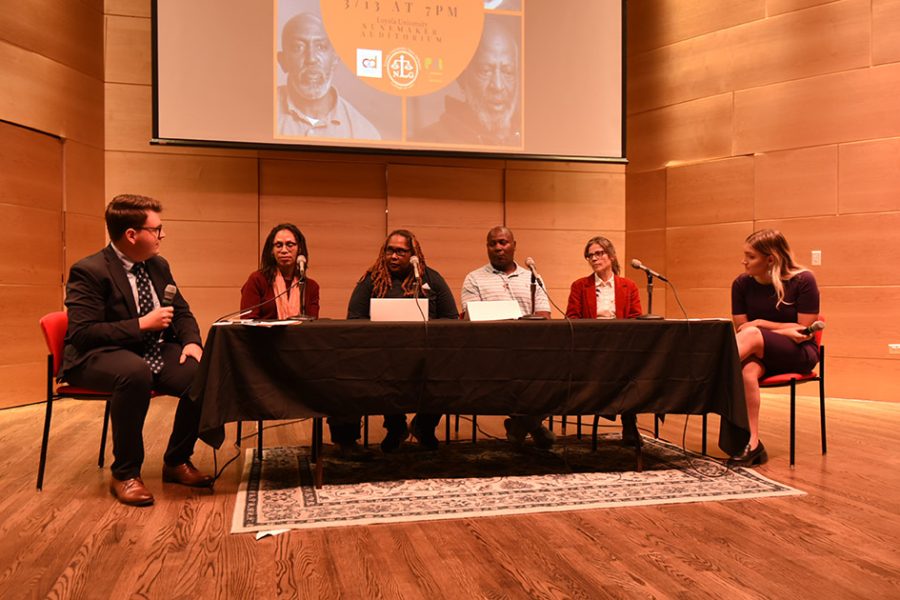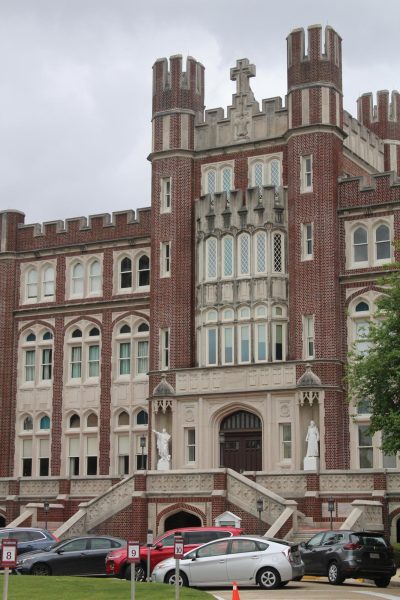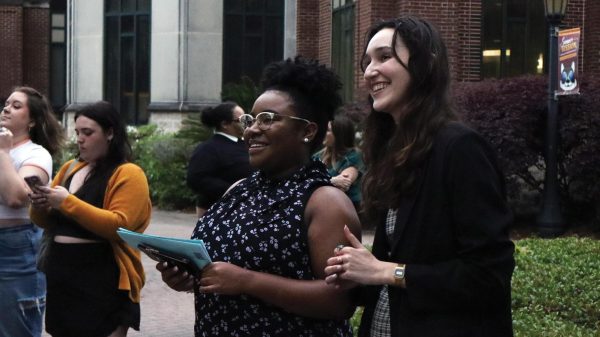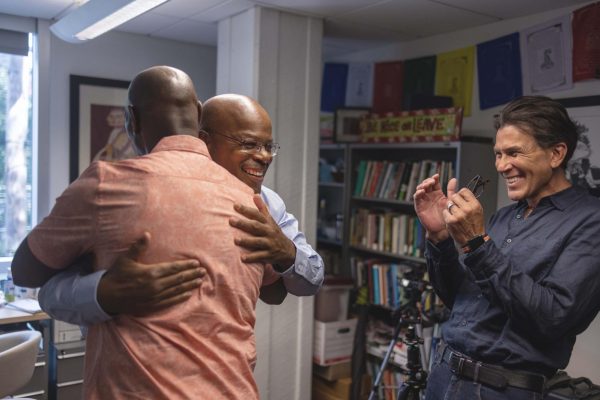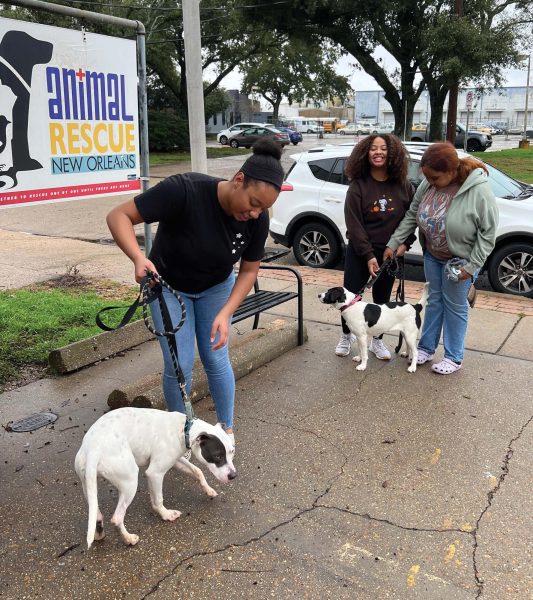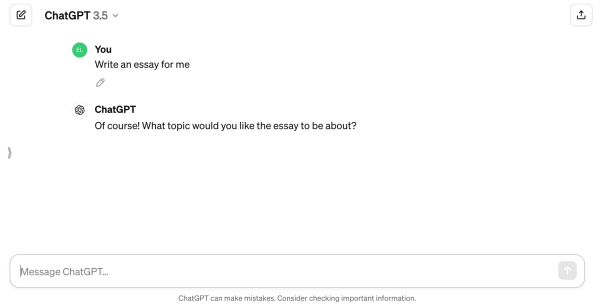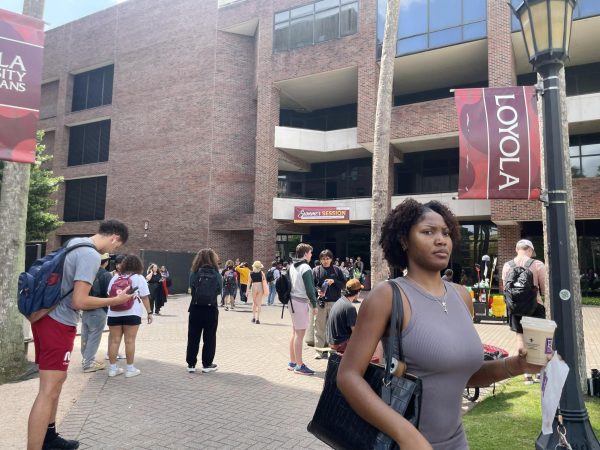Professor starts initiative against human trafficking
Photo of the human trafficking event
March 23, 2023
Media professor Ty Lawson had a vision for a class that taught more than just the “nuts and bolts” when coming to Loyola. He said he recognized the importance of teaching students how to create media that matters.
With the help of the School of Communication and Design and in partnering with Loyola College of Law, Lawson was able to create a new course called “Mapping Human Trafficking” and an initiative titled “Media that Matters,” in which students will be campaigning for awareness of forced labor, human trafficking, and sex trafficking.
Loyola students are also collaborating with Universidad Austral in Argentina to examine different trafficking cases in Central and Latin America, as well as in the United States and China, according to Lawson.
Lawson said that his main inspiration for this course and initiative is the fact that not many people realize that human trafficking goes beyond sex trafficking.
“It’s something we don’t even realize, I mean it’s a $150 billion industry and 20 million people are trafficked every day. There’s money in it,” he said. “We can’t ignore that.”
Lawson talked about the unsafe and inhumane conditions that incarcerated people are forced to undertake, and how Louisiana is a bit late in trying to address this issue, considering the governor’s office of human trafficking only came about four years ago.
“Louisiana is sandwiched between Mississippi and Texas, which are two of the leading states in human trafficking,” he said. “It’s unfortunate that New Orleans didn’t have an office sooner, because we’re a place where we know it happens, because we’re a tourist city.”
Gaining Traction
After going all out and tagging every post with “#mediathatmatters,” Lawson said the initiative started gaining traction.
He said that his course became a popular elective, with a total of 24 students enrolled and students from various majors wishing to participate.
Not only did students express interest in the initiative, but Lawson also said that officials from the Miami and Houston Police Departments, the mayor of Houston, and the executive director of the Louisiana Governor’s Office of Human Trafficking Prevention have shown support and interest in participating.
Lawson hosted an event last week titled “Media that Matters: Investigating Forced Labor in the Bayou” in honor of his new effort, where numerous speakers and students joined in a panel discussion about forced labor in Louisiana.
“They [the executive director at the Louisiana Governor’s Office of Human Trafficking Prevention] drove all the way from Baton Rouge to come to my event,” Lawson said. “The support has been absolutely amazing.”
Professors from the Loyola College of Law also wanted to take part in raising awareness, including Loyola law professor Andrea Armstrong, who spoke at Lawson’s event last week.
Armstrong said that her research and areas of expertise aligned with Lawson’s initiative, and she believes that this initiative will benefit students greatly.
“I think that this is so important, and I’m really a fan of Professor Lawson’s approach to this,” Armstrong said. “I think his students are incredibly fortunate to be able to learn about this stuff with him.”
Armstrong has worked with the Promise of Justice Initiative and conducted extensive study to better understand incarcerated labor in Louisiana, including where it occurs, the conditions that exist, and the types of work that these individuals do.
Real-world ties
The Promise of Justice Initiative strives to effect positive change for those involved in the criminal justice system through impact litigation, direct services, and community engagement.
In response to Armstrong’s research, the Promise of Justice Initiative created a video documentary that contained a series of interviews with Armstrong and individuals who have been incarcerated. The series, which focuses on the individuals’ experiences with forced labor, was shown at Lawson’s event, as well as additional screenings throughout Louisiana.
As a result of both Lawson and Armstrong’s initiatives, Armstrong said that students became interested in hosting a larger event in order to share with the public what they’ve learned. She also said it has helped students be able to apply the things they are learning in the real world by understanding that things like human trafficking exist in their community, whether they can see it or not.
“Professor Lawson’s course, including this event, are part of the Loyola and Jesuit mission,” Armstrong said. “We use our education and our knowledge to advance justice and dignity for every single person in the vein of our social justice purpose curriculum.”
Local impact
Loyola history junior Nha Nguyen, who served as a student moderator for Lawson’s event, said that joining the Promise of Justice Initiative is the first action the community can take to fight against human trafficking.
“We really wanted to hold this event for people to have a better insight and understanding of human trafficking, specifically forced labor in prison systems in Louisiana, and why it truly is a collective cause that we all should be part of,” Nguyen said. “If you can be involved in any way, it helps.”
Nguyen added that she told Lawson that although she’s a history major, she still wanted to be involved in raising awareness.
Similarly, religious studies junior Michael Chandler, who attended the event, stated that the initiative’s topic drew him in. He said that by attending events like “Media that Matters,” people might learn things they would never have known otherwise.
“I think it’s important for people to educate themselves on topics such as this by attending events that they wouldn’t usually go to,” Chandler said. “I never make it to these types of events, but I am glad I did because I would’ve never known of the conditions that these people have undergone.”
He added that more discussion amongst the community would lead to more laws being implemented, and that legislators would have to listen if more people became aware of the issues at hand.
“Actions that one can take start at the ballot,” Chandler said. “We have to find representatives who will see this issue as important to their agenda, and make the situation more public so more people are aware.”
At the end of this semester, Nguyen said the students in Lawson’s course will be hosting an event where they will present the class’ final project, which entails an interactive map regarding human trafficking. They will be teaming up with a professor and students from Universidad Austral to create the map that will tell the stories that are along the various trafficking routes in North, Central, and South America.


